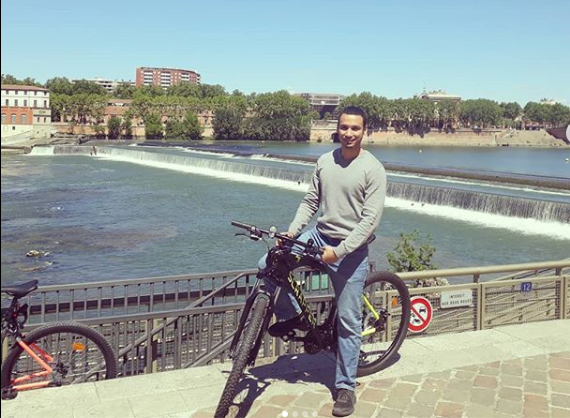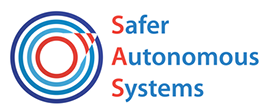What is the key challenge to successfully conduct a PhD? Being smart and creative? Having a high level of commitment? Writing a lot of high-quality scientific papers? The answer is simple: No. Here I explain why.

Managing a PhD is not an easy task, whatever the field. The intention of this post is to talk about some of the difficulties of managing a PhD but also to provide suggestions regarding strategies, tools and personal thoughts that can help PhD students pass through this important period of their careers.
Expectations vs. Reality
A lot of students, including me, tend to start a PhD thinking that being very smart and creative enough to find a solution to a specific problem is essential. Another important expectation is the need to be constantly motivated to work hard every day while writing a lot of scientific papers. Even if these qualities are indeed required at some level to successfully carry out a PhD, the reality is that their fulfillment is not enough. Here the reasons:
Being smart and creative: The longer you study degrees at different institutions, the more you realize that you are not necessarily smarter or more creative than your colleagues and vice-versa. Maybe you are a genius. Congratulations to that, however, even if that is your case, you already know that this is not sufficient to get things done.
Having a high level of commitment: If you are a fresh PhD student or are considering to apply for a PhD degree, you are already probably someone with a high level of commitment and usually work hard to accomplish something. You already had some contact with research, even for a short period, and you’ve probably read something about the duties and the roles/responsibilities of a PhD student.
Writing scientific papers: Unless you work in a big group AND this group has a lot of subjects that intersect with yours AND they are willing to work together with you, you probably won’t publish as many high-quality papers as you had expected before graduating. Unless you put a lot of unnecessary pressure over you and decide to work 16 hours per day. It is expected that you publish high-quality papers but not necessarily a huge amount of them.
Besides, other important things can make your life easier as a PhD student such as being pragmatic, having a good and balanced working relationship with your supervisor and colleagues, including people that work in the administrative departments.
It is important to understand that carrying out a PhD is challenging not just because you are learning to do high-level impact research but also because you need to deal with a lot of other obligations in parallel. These include reading, understanding and synthesizing a lot of scientific papers while giving and attending lectures, scheduling meetings, preparing presentations, preparing yourself for speaking with people from different audiences, and other particularities depending on your program requirements. But there are other important tasks that you will have to manage as well: administrative obligations which tend to be more frequent and time-consuming than you’d think.
Key challenges and personal pieces of advice
One of the key challenges is learning to deal with your life while you are dealing with all these overwhelming things in your PhD. The events of your life, good or bad, will not wait to happen just after your PhD Life is what happens in the present. Doing a good PhD without losing your mental or physical health is (will be) your main challenge. Remember that enrolling in a PhD does not make any sense if you do not intend to do your best in this specific time of your career. But at the same time, it is important for the PhD student to maintain a healthy work-life balance where the candidate places the emphasis on his or her well-being.
Thus, that said, there are some important tips that I extracted from The Happy PhD. Zone: How To Maintain A Work-Life Balance In Academia such as remembering why you are in academia, figuring out what works for you and when you work the best, making plans using tools like EverNote. Another important thing is not to feel overly pressured by the results of other colleagues. As one said in this forum: “A PhD is not a competition by any means, so do not try to look at how others are prospering. Everyone is fighting their war”.
It is also important to mention the importance of doing physical activities as commented in this nice blog post: Twenty things I wish I’d known when I started my PhD, along with other important tips such as writing down everything you can, especially ideas, breaking your thesis into SMART (specific, measurable, attainable, relevant and timely) goals and so on.
I know, we live in a competitive world and we tend to struggle to find time for ourselves. Due to the constant deadlines and obligations, we tend to think that we are losing time when we are doing entertainment things, or simply doing nothing and meditating instead of working in our thesis, which is a common mistake.
Another common thing is isolating ourselves due to the tough studies routine however if doing a PhD can be a lonely business it doesn’t have to be. As shown in this blog post, “you can use sites like Study Hacks which helps students find the best way to study and 3 Month Thesis which offers a guide to a painless PhD” or “looking for the hashtag #PhDchat that will show thousands of tweets linking to various articles on how to efficiently tackle your research”.
Conclusion
As conclusion, I can say that is possible to do a good PhD without forgetting to enjoy your life. Finding the right balance between finishing a PhD and living a good life is a constant learning process and this is your key challenge in this part of your life. It involves planning, good knowledge about yourself, patience, optimism and the most important, resiliency.
Using common PhD alumni pieces of advice and some strategies and tools can also help you to organize your things better.
Therefore, I wish you a wonderful PhD with a great life balance!
About the Author: Raul Sena Ferreira
 Raul Sena Ferreira is an early stage researcher for the ETN-SAS ESR1 project. His research is about computer science and artificial intelligence techniques to ensure the safety decisions of AI-based autonomous vehicles. This research is conducted at LAAS-CNRS, France.
Raul Sena Ferreira is an early stage researcher for the ETN-SAS ESR1 project. His research is about computer science and artificial intelligence techniques to ensure the safety decisions of AI-based autonomous vehicles. This research is conducted at LAAS-CNRS, France.


